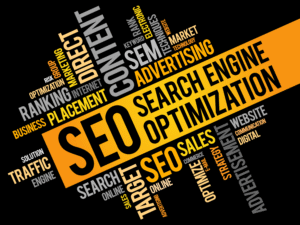
How AI Agents Are Shaping the Future of Business Automation
In today’s fast-paced world, businesses are constantly looking for ways to improve efficiency, reduce costs, and stay ahead of the competition. One of the most significant innovations driving this change is the rise of AI agents. These intelligent systems are automating processes, streamlining operations, and transforming industries. By performing tasks traditionally handled by humans, AI agents are helping companies become more agile and innovative.
In this post, we’ll explore how AI agents are reshaping the future of business automation and what this means for organizations across different sectors.
What Are AI Agents?
AI agents are autonomous systems that use artificial intelligence to perform tasks and make decisions without human intervention. These systems can be integrated into business processes, enabling automation across various departments like customer service, marketing, and operations.
Key Features of AI Agents
- Autonomy: They can perform tasks without continuous supervision, making them highly efficient in repetitive processes.
- Learning Ability: AI agents learn from their environment and improve over time, adapting to new data and situations.
- Decision-Making: Equipped with data analysis tools, they make decisions based on patterns and trends in real-time data.
AI agents go beyond just automating simple tasks—they can optimize workflows, improve accuracy, and help businesses scale more efficiently.
How AI Agents Are Revolutionizing Business Automation
As we’ve seen, AI agents are rapidly changing the landscape of business operations. Now, let’s dive deeper into how AI agents are transforming key aspects of business automation across various industries:
1. Streamlining Customer Service
One of the most significant impacts of AI agents is in customer service. Chatbots, virtual assistants, and automated response systems powered by AI agents are now able to handle customer inquiries, provide information, and even resolve issues without human input.
Benefits:
- 24/7 Availability: Customers can reach out for support at any time, even outside of regular business hours.
- Faster Response Times: AI agents can handle multiple queries simultaneously, drastically reducing wait times.
- Consistency: With AI, businesses can ensure consistent responses to customer queries, eliminating human error.
As a result, companies are improving customer satisfaction and reducing the need for large customer service teams.
2. Optimizing Marketing Campaigns
AI agents are making waves in the marketing world, especially when it comes to automating campaigns. These agents can segment audiences, personalize messages, and optimize ad placements—all while analyzing data in real-time.
Key Advantages:
- Targeted Campaigns: AI agents help businesses segment their audience based on behaviors, demographics, and preferences, ensuring the right message reaches the right people.
- Personalization: By analyzing past customer interactions, AI agents can personalize emails, offers, and ads, increasing engagement rates.
- Real-Time Optimization: They monitor the performance of campaigns and adjust strategies in real-time to maximize ROI.
With these capabilities, marketing teams can run more effective campaigns without manually adjusting every aspect, freeing up time for strategic planning.
3. Automating HR and Recruitment
AI agents are also having a transformative impact on HR and recruitment. These systems can help automate processes like candidate screening, employee onboarding, and performance tracking.
How AI Agents Are Used:
- Resume Screening: AI agents scan resumes and match candidates with job descriptions, helping HR teams identify the best-fit candidates faster.
- Employee Training: AI-powered systems can track employee progress, offer personalized training suggestions, and even automate administrative HR tasks like payroll processing.
- Employee Retention: By analyzing employee data, AI agents can identify trends, predict turnover, and suggest ways to improve retention.
Incorporating AI into HR processes helps businesses save time and ensure they make data-driven decisions regarding talent management.
4. Enhancing Operations and Supply Chain Management
The role of AI agents in operations is growing rapidly. From inventory management to logistics, these systems optimize processes that are traditionally time-consuming and prone to error.
Benefits for Operations:
- Inventory Management: AI agents track stock levels, predict demand, and automate reordering processes, ensuring that businesses don’t experience stockouts or overstocking.
- Supply Chain Optimization: AI systems can analyze shipping routes, predict delays, and suggest more efficient paths to minimize transportation costs.
- Predictive Maintenance: In manufacturing, AI agents monitor equipment health and predict when maintenance is needed, preventing costly downtime.
By automating these tasks, companies can reduce operational costs, improve accuracy, and increase overall efficiency.
5. Driving Data-Driven Decision Making
AI agents excel at analyzing large datasets and providing valuable insights that can help businesses make informed decisions. From financial forecasting to market trends, AI agents are crucial in helping executives and managers understand data at scale.
Key Uses:
- Predictive Analytics: AI agents analyze historical data to predict future trends, helping businesses plan for potential changes in demand, costs, and market conditions.
- Real-Time Insights: These agents process data in real-time, allowing businesses to make quick, informed decisions without waiting for reports.
- Risk Management: By analyzing patterns, AI agents can identify potential risks, such as fraud or market shifts, allowing companies to act swiftly to mitigate them.
This ability to make data-driven decisions is one of the most powerful aspects of AI in business automation.
How to Implement AI Agents in Your Business
Understanding the potential of AI agents is just the first step. The real challenge lies in integrating them into your business operations effectively. In the following section, we’ll walk you through the practical steps to implement AI agents, ensuring you maximize their impact while aligning them with your business goals:
1. Identify Key Areas for Automation
Before integrating AI agents, it’s important to identify which processes in your business would benefit most from automation. Whether it’s customer service, HR, or marketing, AI agents can be tailored to fit various functions across an organization.
2. Choose the Right AI Technology
There are many AI tools available, from chatbots to predictive analytics platforms. It’s essential to select the right technology based on your specific business needs. Some tools may offer more advanced capabilities like natural language processing, while others focus on task automation.
3. Train and Monitor AI Systems
Once implemented, AI agents require training to perform at their best. This involves feeding them quality data and ensuring they are aligned with your business objectives. Regular monitoring and updates are crucial to make sure your AI agents evolve alongside your business needs.
The Future of AI Agents in Business Automation
As AI continues to evolve, the potential for AI agents in business automation is limitless. In the near future, AI agents will become even more intelligent, capable of performing complex tasks that go beyond today’s capabilities. The integration of AI with emerging technologies like 5G and IoT will only accelerate automation across industries, creating new opportunities for innovation and growth.



